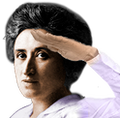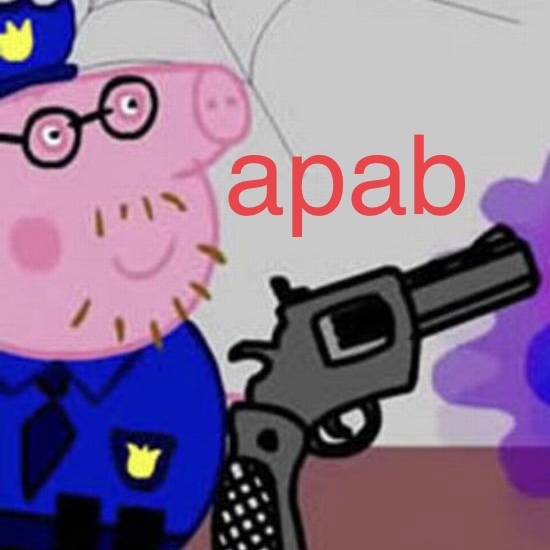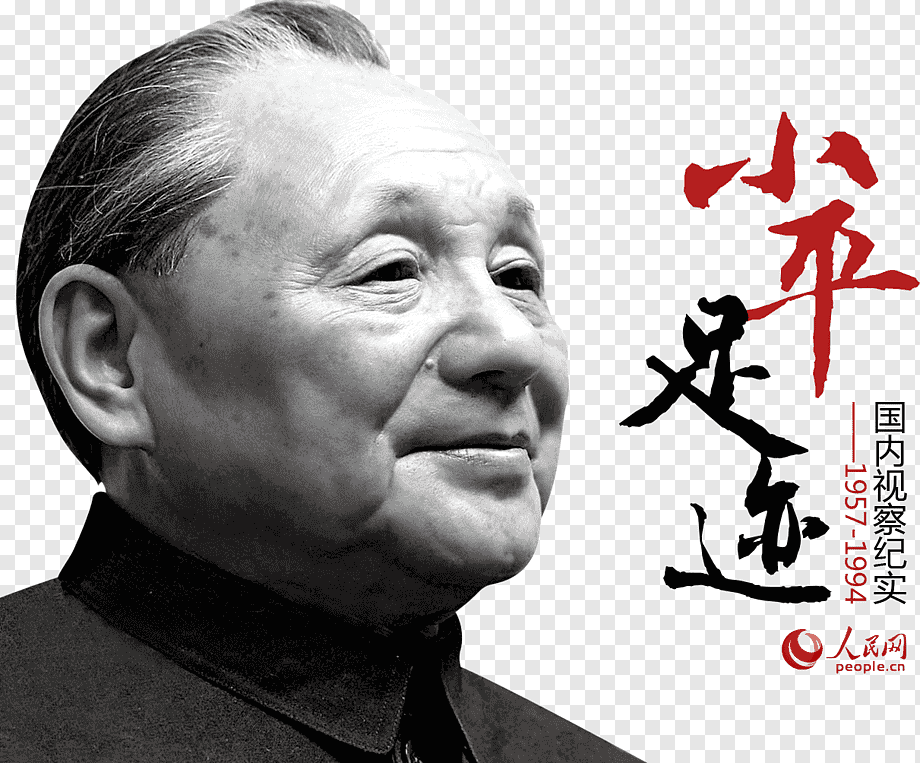Y’all are the only instance making a honest effort to support Palestine. This is something i deeply appreciate. If y’all wanted to recommend reading to teach me about communism. I would appreciate that as well.

 HE’S PERCEIVING THE CONTRADICTIONS
HE’S PERCEIVING THE CONTRADICTIONS 

I love this
only instance
lemmygrad in shambles

Why does it always happen :sadness:
deleted by creator
deleted by creator
Cross site emoji posting is a method I coined. Feels like a shitty hacker movie.
You must post harder, Comrade
Yo comrade, welcome aboard.
For a n00b I would say hands down Blackshirts and Reds by Parenti is the most accessible and informative book on communism I’ve ever read. It’s quite short and was written very recently (at least in comparison to a lot of books on the Immortal Science of Marxist-Leninism).
The State and Revolution by Lenin is also essential reading but that’s a little more in-depth.
If you dig documentaries I would highly recommend Fidel the Untold Story.
Viva Palestine!
Blackshirts and Reds is an absolute banger
that fucking book made me cry

I’ve read The State and Revolution, the book by Parenti and documentary look great, thanks!
That was a good documentary, thank you for the good documentary.
Read “killing hope” by william blum. Its about the insane amount of effort the US went in to massacre the communist movement worldwide for the past century.
This and the Jakarta Method by Vincent Bevins are so helpful to understanding the role the US has played in world history from WW2 to present.
Since everyone else has provided plenty of reading materials, I thought I’d suggest a listen: Blowback (especially season 2 imo). It’s not specifically about communism, but it can help untangle imperialist propaganda you’ve been fed your entire life.

Blowback is SO GOOD it’s very listenable and very profound and the two guys bring wit and humor to it all. They use very reputable mainstream media sources and simply take those facts that had been presented separately and without real analysis, and use that to build their theses
Another big listen: Michael Parenti lecture (1986) also known as “Yellow Parenti”
It’s about 1.5 hours including the Q&A
the only instance making a honest effort to support Palestine.
Lemmygrad slander
This person likely doesn’t know lemmy grad as they are one of the first .world defederated from.
Actually, no. They just defederated yesterday.
.world had most communities blocked so it was essentialy defederated.
What? I swear that was one of the first ones, and .ml was recent. Did I get it backwards or just misremembering?
Here’s the thread from yesterday: https://lemmy.world/post/6709939
I read through some of those comments and jesus christ those people are so confidently wrong it’s fascinating.
deleted by creator
A very helpful early step seems to be less about learning about communism and more about gathering an appreciation for how anticommunism has a long and ongoing history of doing unconscionable things while creating false narratives and false histories that we take for granted.
Blackshirts and Reds by Michael Parenti is a good book for this. Very quick read and welll-written. Basically any exploration of what the US did in the name of anticommunism will also demonstrate these points. Coups and genocide in Guatemala. Propping up mob bosses and terrorists and slavers in Cuba. Bombing every population center in North Korea. Mass killings and genocide in Indonesia. The oppression of the people of the Philippines. Vietnam. Operation Condor. Project Aerodynamic. Operation Paperclip. Operation Gladio. Knowledge of these things in concert creates a stark contrast with the dominant narratives of what Western capitalist nations supposedly stand for.
But I shouldn’t be too presumptuous maybe learning about communism is really the best place to start. For that, I cannot recommend enough to go to the core theory of Marxism, and then build on this to study Lenin and the establishment of the first socialist state. Marxism is useful and valuable in and of itself as a means by which to understand capitalism back then and even now. Lenin and the Bolsheviks are useful for their social embedding, the development of revolutionary practice. Both in combination will also provide a strong grounding in the terminology that is often peculiar to communists, such as what we mean when we call people liberals. For Marx, I recommend reading Heinrich’s Introduction to Capital (and once you’re feeling like really getting into it, Roberts’ similar book and then the original, Capital Vols 1-3). For Lenin, I recommend State and Revolution. Reading Engels is also very useful, picking a few of his most popular writings can’t hurt.
What they wrote is still relevant today. Capitalism was in a midpoint of development then and is now much rather advanced, having most of the same character and developing in many of the ways they predicted. Most importantly, it exposes the core mechanisms of capitalism that lead to its instability, its tendency towards particular forms of violence and destruction, the way it constitutes and creates social practice.
You then have the option of going more in the direction of more philosophical theory or into historical review of revolutions and anticommunism in the 20th century. I think the latter is usually more useful than the former of you have to pick one, but they really complement each other.
Something else that’s helpful is to become as familiar with media criticism as you can. Learn to recognize the tropes and follow sources in depth. Understanding the media apparatus and how it pushes in the interest of capital requires learning like 50 think tank names and feeling comfortable going down the rabbit hole to find out that the independent expert that just got cited is funded by a literal CIA cutout. FAIR.org is a great place to go for absorbing a media critical view. It really is like a muscle that needs to be worked out and developed to stay strong. As you get more comfortable critically absorbing media, you’ll spot the bullshit like the current, racist, pro-genocide MSM narratives against Palestinians on sight and for a wide set of materials. The usual revelation is simple: the American Empire pushes in its perceived self-interest with no care whatsoever about who is harmed in doing so - aside from having a plan for rhetoric so that its people never recognize that they’re the bad guys.
Oh and also there are about 15000 in-jokes here that are communist references. If you hang out with us goofballs you’ll pick them up.
lenin is probably a better starting point than Marx as he writes much more clearly
That’s why I point people to the summaries and intros and companions unless they’re a BIG NERD that prefers to start with 18th-19th century German philosophical writing.
But I do always point people to Marx, albeit in that form, because I see way too many self-proclaimed Marxists that have no understanding of Capital.
Just been reading some of Althusser’s Lenin and Philosophy and Other Essays and it’s essentially a book to say that Lenin was right to say that everyone needs to study Capital. It’s good advice.
I remember watching the extra DVD that came with Lord of the Rings. There’s a guy on the DVD who claimed to have read the series once a year every year and was thrilled to be asked to be involved with the movie. I wouldn’t say Marxists need to do that with Capital (although David Harvey did and it worked out well for him) but it wouldn’t be a bad idea to study it carefully at some point and then to revisit it often enough to keep it fresh.
That said, my recommendation to the OP is Harvey’s Rebel Cities. Fantastic book and may motivate the reader to say, ‘Damn, how do I think like that, too?’ And then they’ll have to and want to read Capital, too.
National liberation is essential to communism!
I’d recommend Wretched of the Earth by Franz Fanon and anything by Aime Cesaire (I haven’t dug into Cesaire but has been well recommended) for understanding colonization and decolonization.
For the concepts of nationhood and national liberation, you can also check on out Marxism and the National Question by Stalin and if that has too much baggage for you due to the author try The National Question by Ibrahim Kaypakkaya (ideally both!)
also Max All has a good section in “A Peoples Green New Deal” about the national question and national liberation in regards to our environment, land and agriculture which I find the most convincing in recent times
deleted by creator
I feel obligated by my username to mention that Frantz Fanon was influential on the Palestinian liberation movements. The Wretched of the Earth is his most important work in this regard.
I’d strongly recommend giving that book a read.
Good shit
Welcome!
I’d recommend Blackshirts and Reds by Parenti. Watch the best lecture of all time first, I think it motivates the book very nicely.
If you’re inclined to learn about economic theory I recommend you start with Wage Labor and Capital by Marx.
If you want to learn about how (or whether to) vote, read Bourgeois and Proletarian Electoralism by Lenin.
If you’re interested in how women, particularly Black women, are exploited under capitalism read Women, Race, and Class by Angela Davis.
There are lots of great books about indigenous liberation if that’s what’s radicalizing you. Off the top of my head I don’t really know any about Palestine, but some that I’ve heard are good include Wretched of the Earth, Open Veins of Latin America, and An Indigenous People’s History of the United States.
For Palestine, Strategy for the Liberation of Palestine by the PFLP (1967) might be good for understanding through a Marxists lens (unfortunately I haven’t gone through this myself yet)
Is there any yellow parenti with cleaned up audio?
Oke, step 1: put on these cat ears…

whats going on
Dialectical materialism
Dialectical catearialism
good post
This is a deeply cursed emoji I didn’t even know we had, and yet I love it
It’s a recent addition.
Welcome to the red menace

Echoing others — the best thing you can do is read/listen to what communists have to say. Not filtered through Wikipedia or other mainstream sources, but directly from the mouths of communists.
Try not to see communism as an aesthetic, an edgy anti-status quo thing. Take time to seriously engage with the ideas and theory. The books already mentioned here are a great start.
Bill and Ted summed it up pretty well when they said “Be excellent to each other.”
I see a lot of “learn more about communism” comments but we should also throw in some “unlearn anticommunist propaganda” comments. A lot of outright false information is spread about actually existing socialist states of the past and present. There are valid criticisms of all these states but it’s hard to separate them from the century of slander capitalists have written.
tbh my main source for this is the hexbear search bar lol. I put in the topic I’m interested in and then sift through the comments and posts that come up. People are well read here and can link interesting sources I would struggle to find on my own, although I’ve gotten a lot better at researching this stuff over the years.
my main source for this is the hexbear search bar lol. I put in the topic I’m interested in and then sift through the comments and posts that come up
this is genius, thank you so much
You got it right here. The biggest stumbling block I’ve noticed is western chauvinism. People get into leftist theory all the time. They can recite Marx backwards and forwards. What stops them is a core belief that non-western people are backwards and that foreign attempts to create socialism all did it incorrectly. They’ll throw around words like authoritarian, tyranny, they’ll refuse to acknowledge the accomplishments of foreign socialist movements. Parenti is really good on this one.
So that’s the thing people should focus on. We need international solidarity immediately. We need an understanding from first worlders that they live in imperialist countries that have boots on the necks of other nations, including foreign socialist nations. Everyone really needs to unlearn the idea that communism only works when it fits their cultural, racial, or linguistic biases. Without an understanding of international history, you just get ultra-leftists, armchair socialists, or people who distort/mangle the name of anarchists.


























